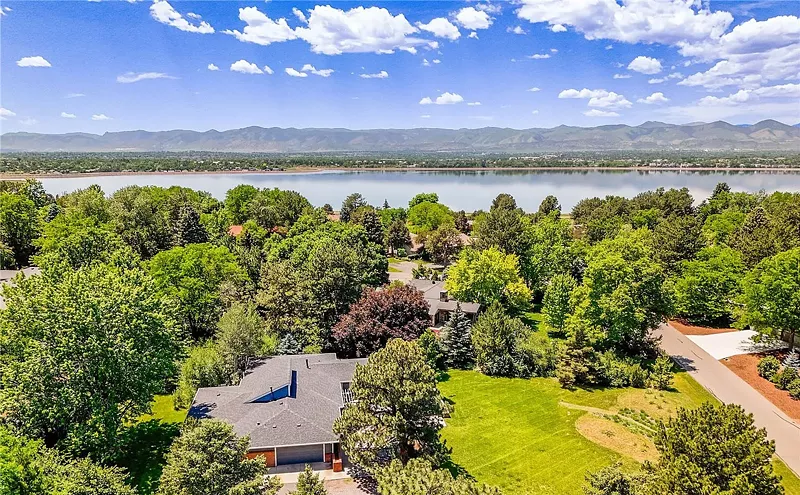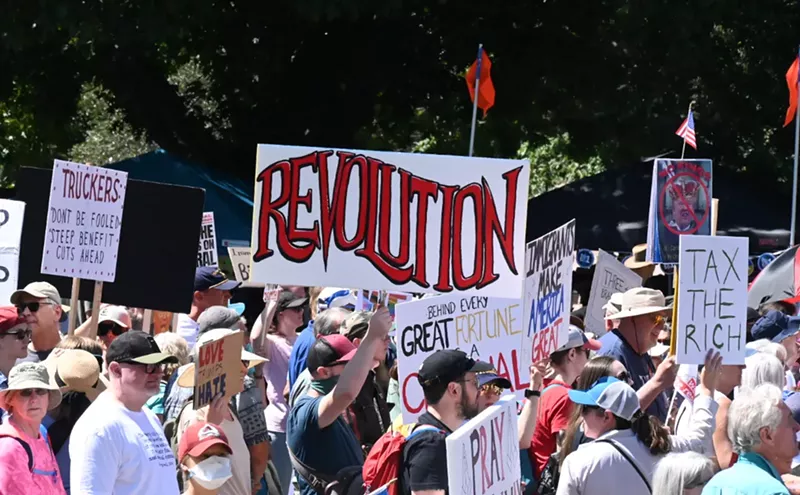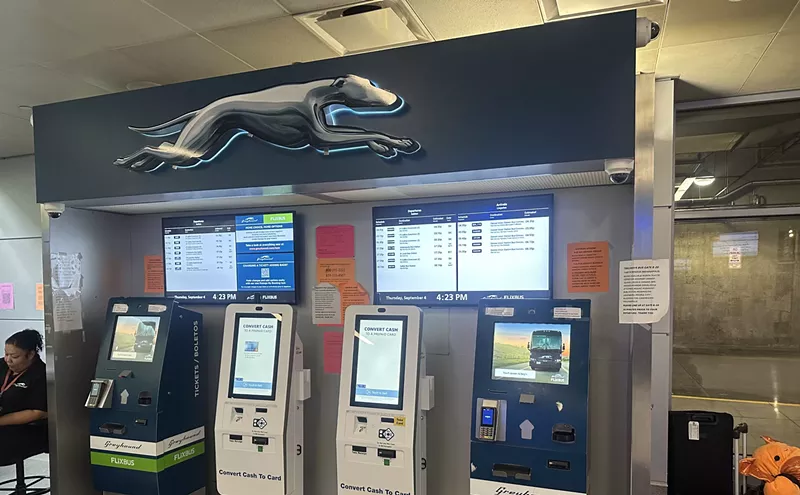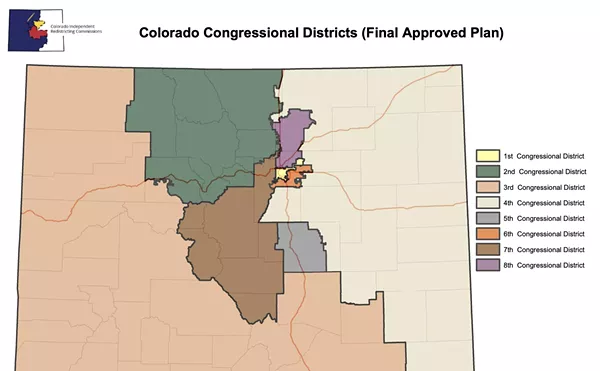As Denver's safe-camping site model approaches its one-year anniversary, ten registered neighborhood organizations have banded together to push the Hancock administration and Denver City Council to build out the program.
"This is a citywide issue and it requires citywide, coordinated action. And what we see right now is action in certain council districts and no communication from other council districts. And that cannot continue, knowing that encampments, unsanctioned or otherwise, exist in most corners of the city," says Travis Leiker, president of Capitol Hill United Neighborhoods.
The ten RNOs that comprise the Unhoused Action Coalition represent large sections of Denver where homelessness is prominent and visible, such as East Colfax Avenue, Uptown and Baker. The Denver Metro Fair Housing Center has also signed on with the group.
Leiker and other RNO reps have been lobbying the City of Denver since last October to optimize its processes for setting up safe outdoor spaces, which house residents in uniform tents while offering on-site access to sanitation and services. The first sites opened on private property — church parking lots — in Capitol Hill and Uptown in December 2020.
In June, those original sites were replaced by one in Park Hill and another at Regis University; a third has been proposed for Lincoln Park. But the Unhoused Action Coalition argues that Denver needs more sites to keep up with the estimated 1,500 or so individuals living in unsheltered settings across the city these days.
"I probably receive three or four inquiries about encampments on a daily basis," says Leiker. "I’m running out of ways to provide solutions because we keep encouraging the same action plan on behalf of all of our organizations and all of our neighborhoods."
In late September, the Unhoused Action Coalition — which now meets weekly and just adopted its name a few weeks ago — sent Denver officials a series of recommendations for how the city should approach housing and homelessness.
Among those recommendations were two that related to safe-camping sites: "identify, select, and garner neighborhood support for newly initiated Safe Outdoor Spaces (SOS) to transition those sleeping on Denver’s streets from unsanctioned to sanctioned locations" and "make public properties available for SOS sites; advocate for these locations through the City Council approval process."
Leiker's group has not yet received a response from the city.
But Britta Fisher, the city's chief housing officer, has read the letter. "Supporting our unhoused neighbors to stability is of utmost concern for our community," she says. "Our final strategic plan draft sets out an aggressive goal to reduce unsheltered homelessness by half. We appreciate the perspective and urgency of the Unhoused Action Coalition and hope they see much of their feedback as well as broader community feedback reflected in the final plan. We stand alongside our contracted partner Colorado Village Collaborative in implementing and expanding safe outdoor space in Denver in both private and public spaces."
Within the month, Denver City Council will vote on the Department of Housing Stability's Five-Year Strategic Plan, which is designed to guide the city's approach to homelessness and housing from 2022 through 2026.
That plan notes that the city has a goal of expanding its support for the safe-camping site model. In fact, the city plans to use $4 million in American Rescue Plan Act money for safe-camping sites this year, with much of that money going toward the Colorado Village Collaborative, which runs the existing safe-camping sites outside Park Hill United Methodist Church and on a Regis University parking lot.
The CVC's executive director, Cole Chandler, believes the coalition's recommendations are based on "common sense" in relation to their own experiences living near unsanctioned encampments and safe-camping sites.
"These neighborhood leaders are clear: Safe outdoor spaces offer a humane, dignified, resource and service-rich alternative to the status quo that can safely and effectively integrate into their surrounding neighborhood context. We hope to see their calls for both public land and public support met with swift action from our elected and governmental leaders," says Chandler, who expects the city's safe-camping site capacity to hit 300 by early 2022.
So far, just three council districts have hosted safe-camping sites. The first two were in District 10, represented by Councilman Chris Hinds. The Regis site is in Councilwoman Amanda Sandoval's District 1. Councilman Chris Herndon represents District 8, home of the Park Hill site. District 3, represented by Councilwoman Jamie Torres, is slated to have a safe-camping site on a Denver Health-owned parking lot at West Eighth Avenue and Elati Street in early November. That leaves seven council districts with no safe-camping site — and no prospects of one.
The Unhoused Action Coalition wants to change that. "I hope that we get at least one SOS in every district of Denver. I think people will be very happy with what they see. I don’t think they have anything to be afraid of," says Judy Trompeter, president of Uptown on the Hill, one of the RNOs participating in the group.
Like Leiker, Trompeter was an early proponent of the safe outdoor space model. "I think the fact that these safe outdoor spaces have been run so well and, to my knowledge, have only added to neighborhoods, not taken away from neighborhoods, have proved their value," she says. "I think additional other property owners can step forward knowing that they will be in good hands."

Audio By Carbonatix
[
{
"name": "GPT - Billboard - Slot Inline - Content - Labeled - No Desktop",
"component": "23668565",
"insertPoint": "2",
"requiredCountToDisplay": "2"
},{
"name": "STN Player - Float - Mobile Only ",
"component": "23853568",
"insertPoint": "2",
"requiredCountToDisplay": "2"
},{
"name": "Editor Picks",
"component": "17242653",
"insertPoint": "4",
"requiredCountToDisplay": "1"
},{
"name": "Inline Links",
"component": "18838239",
"insertPoint": "8th",
"startingPoint": 8,
"requiredCountToDisplay": "7",
"maxInsertions": 25
},{
"name": "GPT - 2x Rectangles Desktop, Tower on Mobile - Labeled",
"component": "24956856",
"insertPoint": "8th",
"startingPoint": 8,
"requiredCountToDisplay": "7",
"maxInsertions": 25
},{
"name": "Inline Links",
"component": "18838239",
"insertPoint": "8th",
"startingPoint": 12,
"requiredCountToDisplay": "11",
"maxInsertions": 25
},{
"name": "GPT - Leaderboard to Tower - Slot Auto-select - Labeled",
"component": "17676724",
"insertPoint": "8th",
"startingPoint": 12,
"requiredCountToDisplay": "11",
"maxInsertions": 25
}
]












